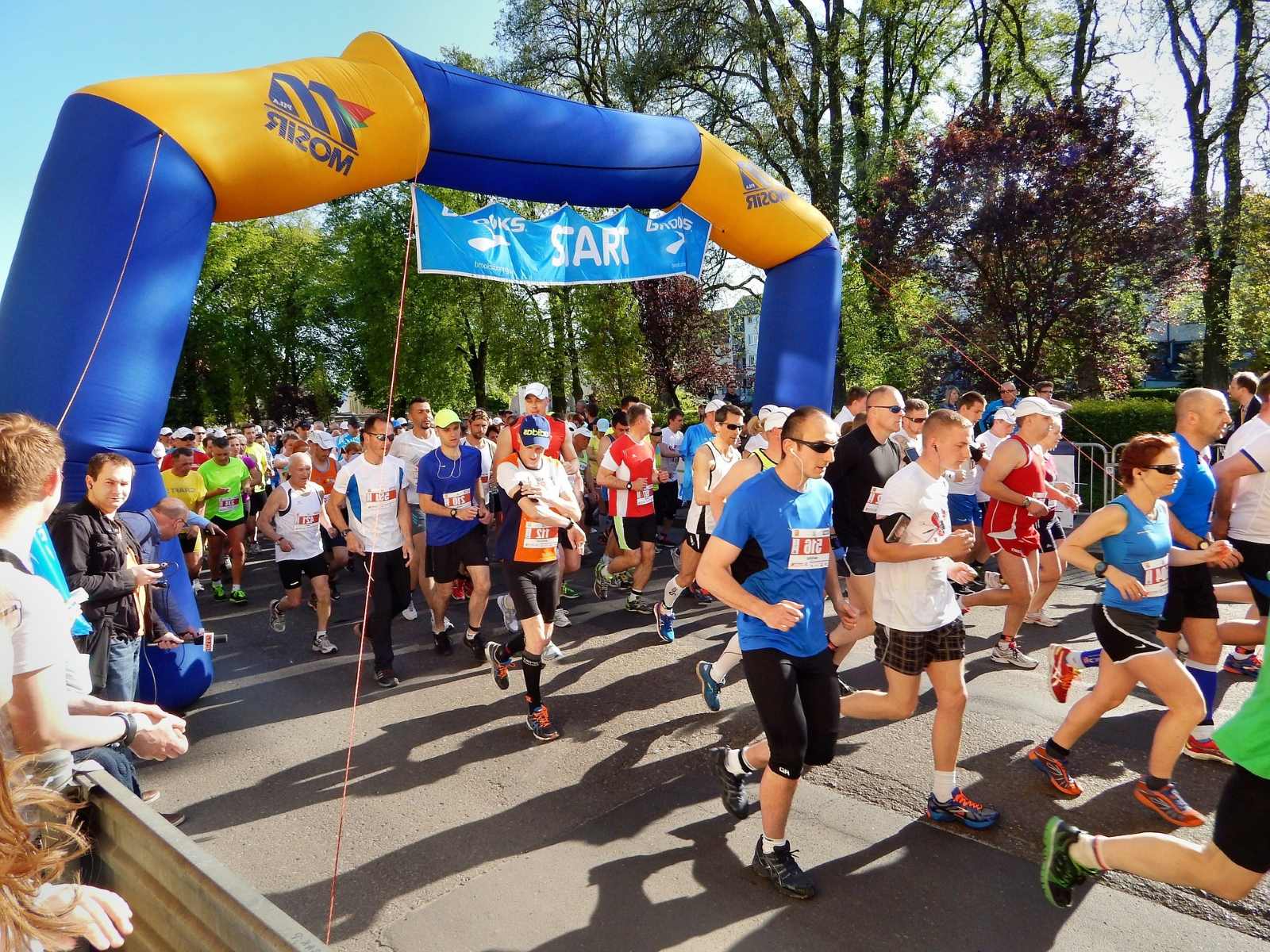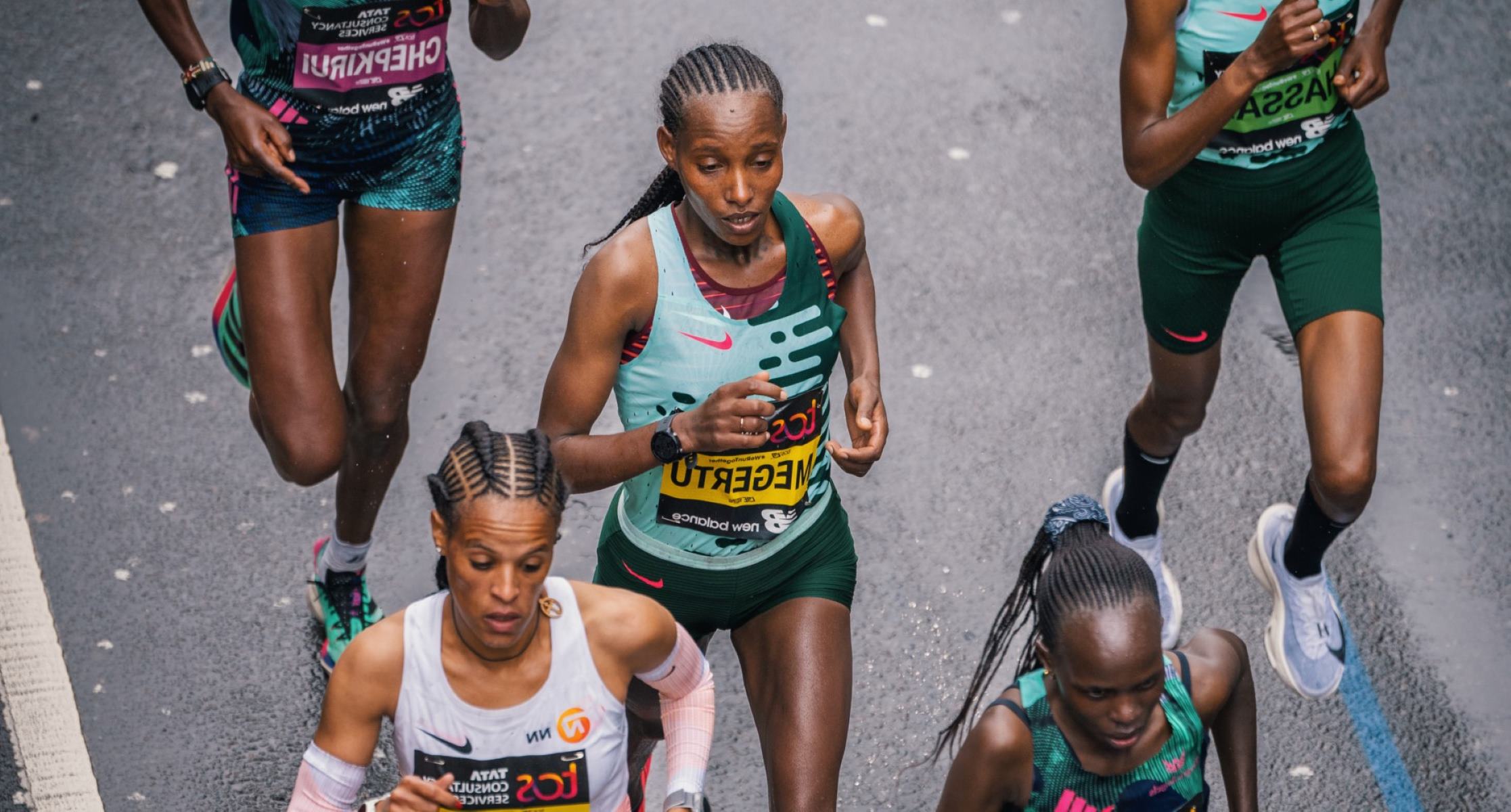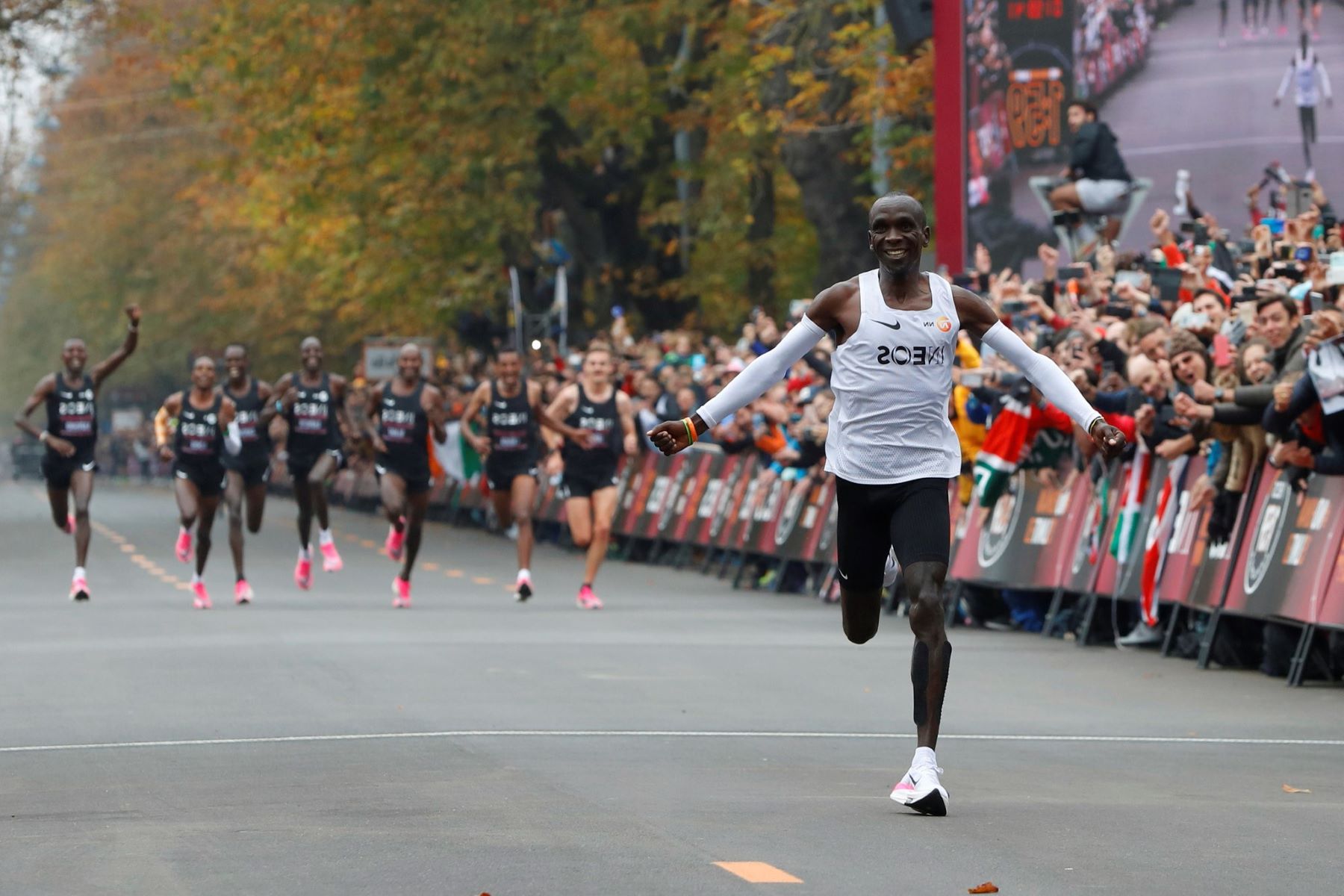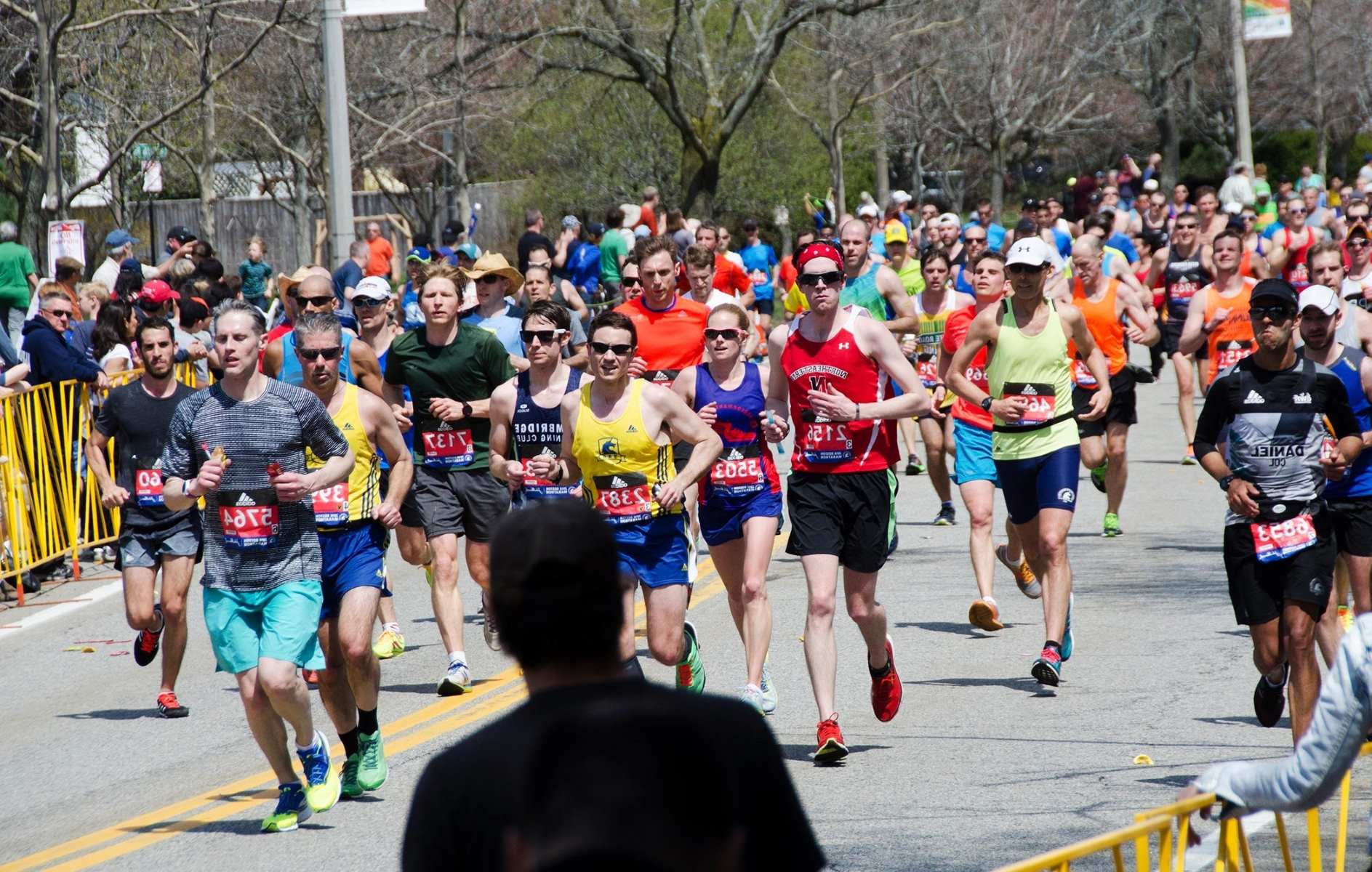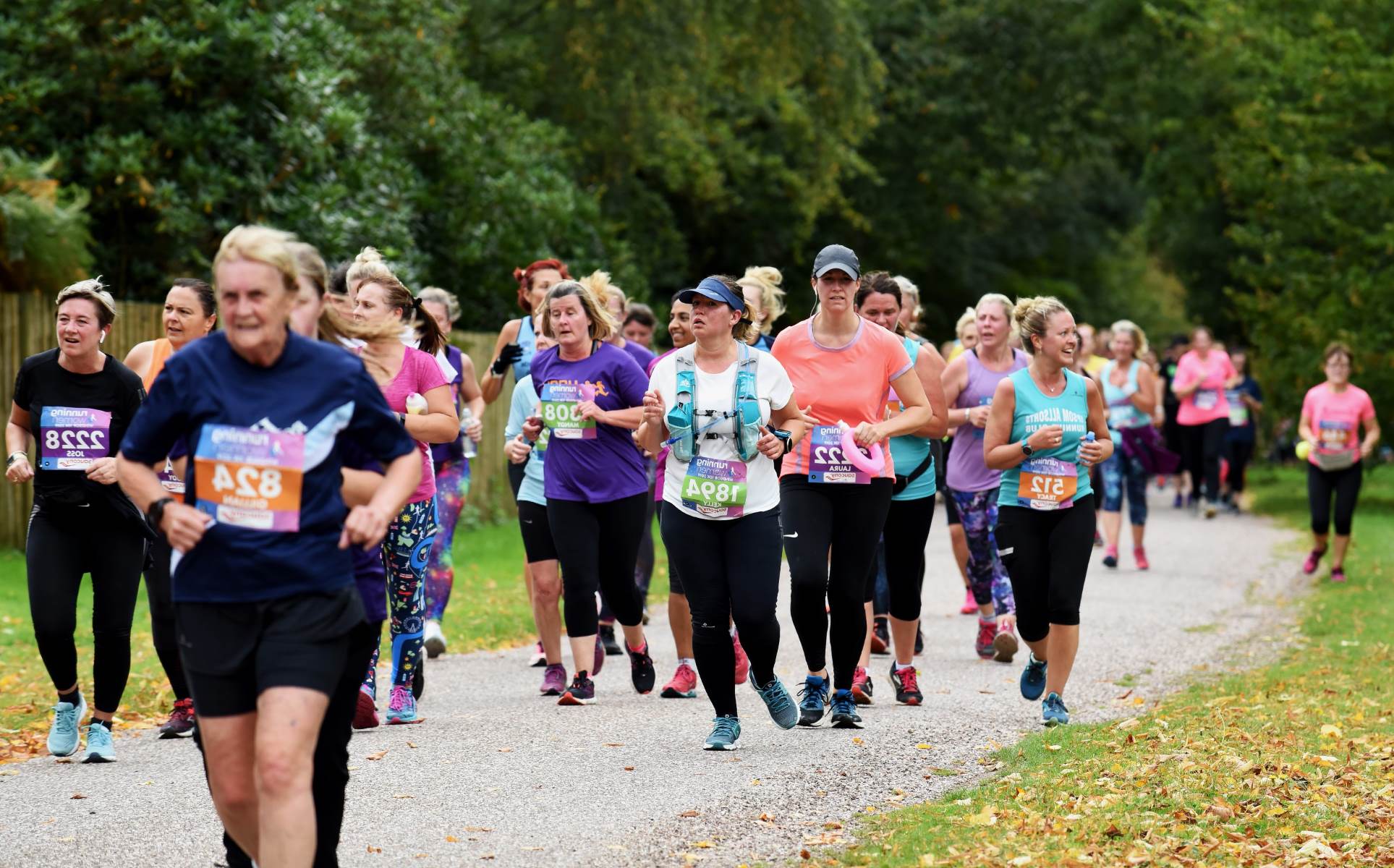Home>Training & Techniques>Experts Explain The Duration Required For Marathon Training


Training & Techniques
Experts Explain The Duration Required For Marathon Training
Published: March 1, 2024
Learn the best training and techniques for marathon preparation from experts. Discover the ideal duration required for effective marathon training.
(Many of the links in this article redirect to a specific reviewed product. Your purchase of these products through affiliate links helps to generate commission for Therunningadvisor.com, at no extra cost. Learn more)
Table of Contents
Introduction
Marathon training is a rigorous and rewarding journey that requires dedication, perseverance, and strategic planning. Whether you're a novice runner aiming to conquer your first marathon or an experienced athlete seeking to improve your performance, understanding the duration required for effective training is crucial. This article will delve into the various factors that influence the duration of marathon training, provide recommended timelines for different skill levels, and offer valuable tips to ensure a successful training experience.
Embarking on a marathon training program is a transformative endeavor that goes beyond physical fitness. It demands mental fortitude, time management, and a supportive network. As you lace up your running shoes and set your sights on the finish line, it's essential to recognize that the duration of your training will significantly impact your overall preparedness for the marathon. By comprehensively exploring the factors that shape training duration and offering tailored recommendations for beginners, intermediate, and advanced runners, this article aims to equip you with the knowledge and insights needed to embark on a fulfilling and effective marathon training journey.
The journey to marathon success is not merely about logging miles or adhering to a rigid schedule. It's about understanding your body's capabilities, setting realistic goals, and embracing a holistic approach to training. As we delve into the intricacies of marathon training duration, it's important to approach this topic with an open mind and a willingness to adapt to the unique demands of your body and lifestyle. Whether you're a seasoned marathon enthusiast or a newcomer to the running world, the information presented in this article will serve as a valuable guide to help you navigate the complexities of marathon training duration and set you on the path to achieving your personal best.
Factors affecting marathon training duration
The duration of marathon training is influenced by a myriad of factors that collectively shape the journey from the starting line to the triumphant finish. Understanding these factors is essential for tailoring a training plan that aligns with individual capabilities and goals. Here are the key elements that impact marathon training duration:
-
Experience Level: Novice runners typically require a longer training period compared to seasoned athletes. Beginners need to gradually build endurance, adapt to the physical demands of running, and familiarize themselves with structured training regimens. Conversely, experienced runners may require a shorter training duration to fine-tune their performance and maintain peak fitness levels.
-
Fitness Level: The current fitness level of an individual plays a pivotal role in determining the duration of marathon training. Those who are already active and possess a solid cardiovascular foundation may progress more rapidly through their training program, while individuals starting from a lower fitness baseline may need additional time to build strength and stamina.
-
Injury History: Past injuries can significantly impact the duration of marathon training. Individuals with a history of injuries may need to incorporate extended rest periods, cross-training activities, and targeted rehabilitation exercises into their training schedule to prevent recurring issues and ensure a safe and sustainable buildup to the marathon.
-
Time Commitment: The amount of time available for training each week directly influences the overall duration of marathon preparation. Those with limited training hours may need to extend their training period to accommodate gradual progression and avoid overexertion, while individuals with more flexible schedules can potentially condense their training timeline without compromising effectiveness.
-
Lifestyle Factors: Personal commitments, work schedules, and family responsibilities can impact the duration of marathon training. Balancing training with other aspects of life is crucial for preventing burnout and maintaining overall well-being. Understanding how lifestyle factors intersect with training duration is essential for creating a sustainable and harmonious training plan.
-
Goal Specificity: The specific goals and aspirations of a runner can shape the duration of marathon training. Those aiming for a personal best or seeking to achieve a specific time target may require a more focused and intensive training period, whereas individuals running for the experience and personal fulfillment may opt for a more relaxed and extended training approach.
-
Nutrition and Recovery: Adequate nutrition and recovery practices play a vital role in determining training duration. Proper fueling, hydration, and recovery strategies can optimize training efficiency, potentially shortening the overall duration required to reach peak performance levels.
Understanding these factors and their interplay is essential for crafting a tailored marathon training plan that optimizes the duration while prioritizing safety, sustainability, and performance enhancement. By acknowledging the multifaceted nature of marathon training duration, individuals can navigate their training journey with clarity and purpose, setting the stage for a fulfilling and successful marathon experience.
Recommended duration for beginner marathon training
For individuals venturing into the realm of marathon running, embarking on a well-structured training program is paramount to ensure a safe and rewarding journey. Beginner marathon runners, often referred to as novices, typically require a more extended training period compared to their experienced counterparts. The duration of training for beginners is influenced by the need to gradually build endurance, adapt to the physical demands of running, and familiarize themselves with structured training regimens.
A recommended timeline for beginner marathon training typically spans between 20 to 24 weeks. This extended duration allows novice runners to acclimate their bodies to the rigors of long-distance running, progressively increase their mileage, and develop the mental resilience required for marathon success. The gradual buildup of training volume and intensity over this timeframe serves as a foundation for minimizing injury risk, enhancing aerobic capacity, and instilling confidence in tackling the marathon distance.
During the initial phase of beginner marathon training, emphasis is placed on establishing a consistent running routine, gradually increasing weekly mileage, and integrating cross-training activities to promote overall fitness and mitigate the risk of overuse injuries. The early weeks of training focus on building a strong aerobic base, allowing the body to adapt to the physiological demands of sustained running while laying the groundwork for more advanced training phases.
As the training progresses, novice runners gradually incorporate long runs, tempo runs, and speed workouts to enhance endurance, speed, and overall race preparedness. The gradual introduction of these elements ensures that beginners can adapt to the increasing physical demands of marathon training while minimizing the likelihood of burnout or injury.
Furthermore, the extended duration of beginner marathon training provides ample time for runners to familiarize themselves with essential aspects of marathon preparation, including proper nutrition, hydration strategies, recovery techniques, and race-day logistics. This comprehensive approach equips novice runners with the knowledge and skills necessary to navigate the complexities of marathon training and instills a sense of confidence and readiness as they approach race day.
By adhering to a well-structured training plan spanning 20 to 24 weeks, beginner marathon runners can cultivate the physical and mental resilience required to conquer the marathon distance. This extended duration allows for a gradual and sustainable progression, fostering a strong foundation for future endeavors in the realm of long-distance running.
In essence, the recommended duration for beginner marathon training strikes a balance between gradual progression, injury prevention, and holistic preparation, setting the stage for a fulfilling and successful marathon experience for individuals venturing into the world of long-distance running.
Recommended duration for intermediate marathon training
Intermediate marathon runners, characterized by their evolving experience and proficiency in long-distance running, benefit from a nuanced approach to training duration that balances progression and recovery. With a solid foundation in place, intermediate runners can leverage their existing fitness levels to embark on a training program tailored to enhance performance and endurance while mitigating the risk of overtraining and burnout.
The recommended duration for intermediate marathon training typically spans between 16 to 20 weeks. This timeframe allows intermediate runners to build upon their existing aerobic base, refine their speed and endurance, and strategically prepare for the demands of the marathon distance. Unlike beginner runners, intermediates can leverage their prior experience to streamline their training progression, incorporating more advanced workouts and targeted training strategies to optimize their performance.
During the initial phase of intermediate marathon training, runners focus on refining their aerobic capacity, integrating tempo runs, long runs, and interval training to enhance speed, endurance, and race-specific fitness. The structured approach to training allows intermediates to fine-tune their running mechanics, optimize pacing strategies, and develop the mental fortitude required for sustained efforts over the marathon distance.
As the training progresses, intermediates gradually increase their weekly mileage, incorporating specific workouts to simulate race conditions and acclimate their bodies to the rigors of marathon running. The strategic integration of speed work, hill repeats, and race-pace segments serves to enhance overall race preparedness while instilling confidence in tackling the physical and mental challenges inherent in marathon racing.
Furthermore, the intermediate training phase emphasizes the refinement of nutrition and hydration strategies, recovery practices, and mental conditioning to ensure a holistic and comprehensive approach to marathon preparation. Intermediate runners leverage their prior experience to fine-tune these critical aspects of training, optimizing their overall readiness for the marathon distance.
By adhering to a well-structured training plan spanning 16 to 20 weeks, intermediate marathon runners can capitalize on their existing fitness foundation to elevate their performance and readiness for the marathon. This intermediate duration strikes a balance between progression and recovery, enabling runners to optimize their training while minimizing the risk of overexertion and injury.
In essence, the recommended duration for intermediate marathon training empowers runners to refine their skills, enhance their endurance, and elevate their overall readiness for the marathon distance. Intermediate runners can leverage their prior experience to embark on a purposeful and strategic training journey, setting the stage for a fulfilling and successful marathon experience.
Recommended duration for advanced marathon training
Advanced marathon training represents the pinnacle of preparation for seasoned runners aiming to maximize their performance and achieve ambitious race goals. With a wealth of experience and a comprehensive understanding of the demands of marathon racing, advanced runners embark on a training journey characterized by precision, specificity, and a relentless pursuit of excellence.
The recommended duration for advanced marathon training typically spans between 12 to 16 weeks, reflecting the focused and intensive nature of preparation at this skill level. This condensed timeframe is predicated on the assumption that advanced runners possess a robust aerobic base, refined running mechanics, and a deep understanding of their physiological and psychological thresholds. As such, the training duration is optimized to fine-tune performance, peak at the right time, and minimize the risk of overtraining or staleness.
During the initial phase of advanced marathon training, runners focus on honing race-specific fitness, integrating targeted workouts to simulate the demands of marathon racing. This includes structured tempo runs, long runs with race-pace segments, and interval training tailored to enhance speed, endurance, and mental resilience. The emphasis on specificity and race simulation allows advanced runners to fine-tune their pacing strategies, optimize fueling and hydration approaches, and cultivate the mental fortitude required for sustained efforts over the marathon distance.
As the training progresses, advanced runners strategically increase their training volume and intensity, leveraging their experience to navigate the fine line between pushing boundaries and preventing burnout. The integration of advanced training methodologies, such as periodization, tapering, and race-specific simulations, ensures that runners peak at the right time, optimizing their readiness for the marathon while minimizing the risk of overexertion or injury.
Furthermore, the advanced training phase places a premium on recovery strategies, mental conditioning, and meticulous race preparation. Advanced runners leverage their experience to fine-tune these critical aspects of training, ensuring that every facet of their preparation is optimized to support peak performance on race day.
By adhering to a well-structured training plan spanning 12 to 16 weeks, advanced marathon runners can capitalize on their extensive experience and refined fitness levels to elevate their performance and readiness for the marathon. This condensed duration reflects the precision and specificity required at the advanced level, empowering runners to optimize their training while minimizing the risk of overexertion and staleness.
In essence, the recommended duration for advanced marathon training epitomizes the culmination of experience, dedication, and relentless pursuit of excellence. Advanced runners embark on a purposeful and strategic training journey, leveraging their expertise to set the stage for a fulfilling and successful marathon experience.
Tips for successful marathon training
Embarking on a marathon training journey is a transformative endeavor that demands meticulous planning, unwavering dedication, and a holistic approach to preparation. Whether you're a novice runner aiming to conquer your first marathon or an experienced athlete seeking to elevate your performance, incorporating key strategies into your training regimen can significantly enhance your readiness and overall experience. Here are essential tips for successful marathon training:
-
Establish Clear Goals: Define specific and realistic goals for your marathon training, whether it's completing the race, achieving a personal best, or simply enjoying the experience. Clear objectives will guide your training plan and provide motivation throughout the journey.
-
Gradual Progression: Embrace a gradual buildup of mileage and intensity to minimize the risk of injury and allow your body to adapt to the increasing demands of marathon training. Avoid the temptation to ramp up training too quickly, as this can lead to overuse injuries and burnout.
-
Cross-Training: Incorporate cross-training activities such as swimming, cycling, or strength training to enhance overall fitness, prevent monotony, and reduce the impact of repetitive running on your body.
-
Nutrition and Hydration: Prioritize proper nutrition and hydration to fuel your training and optimize recovery. Maintain a balanced diet rich in carbohydrates, proteins, and healthy fats, and stay adequately hydrated throughout your training program.
-
Rest and Recovery: Integrate rest days into your training schedule to allow for physical and mental recovery. Adequate rest is essential for muscle repair, injury prevention, and overall well-being.
-
Listen to Your Body: Pay attention to signals from your body, such as fatigue, soreness, or persistent discomfort. Adjust your training as needed and seek professional guidance if you experience persistent issues.
-
Mental Conditioning: Cultivate mental resilience through visualization, positive self-talk, and mindfulness practices. Mental strength is crucial for overcoming challenges during training and on race day.
-
Race Simulation: Incorporate race-specific simulations into your training, including long runs at goal race pace and dress rehearsals for race-day logistics. Familiarizing yourself with the demands of the marathon distance will boost your confidence and preparedness.
-
Tapering: Implement a structured tapering phase in the weeks leading up to the marathon to allow your body to recover and peak on race day. Gradually reduce training volume while maintaining intensity to optimize performance.
-
Seek Support: Surround yourself with a supportive network of fellow runners, coaches, and mentors who can provide guidance, motivation, and camaraderie throughout your training journey.
By integrating these tips into your marathon training, you can optimize your preparation, minimize setbacks, and set the stage for a fulfilling and successful marathon experience. Remember that each runner's journey is unique, so tailor these strategies to align with your individual needs, goals, and aspirations. With dedication, perseverance, and a strategic approach, you can embark on a rewarding marathon training journey and cross the finish line with a sense of accomplishment and pride.
Conclusion
In conclusion, the duration of marathon training is a multifaceted and dynamic aspect of preparing for the ultimate test of endurance and determination. Whether you're a beginner taking the first strides into the world of marathon running, an intermediate runner seeking to refine your skills, or an advanced athlete aiming for peak performance, understanding the nuanced factors that influence training duration is paramount. By tailoring your training plan to align with your experience level, fitness capacity, and personal goals, you can embark on a purposeful and rewarding marathon training journey.
For beginners, the recommended training duration of 20 to 24 weeks provides a comprehensive foundation for gradually building endurance, familiarizing oneself with structured training regimens, and instilling the mental resilience required for marathon success. Intermediate runners, with a recommended training duration of 16 to 20 weeks, can leverage their existing fitness levels to refine their speed and endurance while strategically preparing for the demands of the marathon distance. Advanced runners, characterized by their extensive experience and proficiency, benefit from a condensed training duration of 12 to 16 weeks, reflecting the precision and specificity required to maximize performance and readiness for the marathon.
Throughout the training journey, embracing gradual progression, incorporating cross-training activities, prioritizing nutrition and hydration, and integrating rest and recovery are essential principles that apply across all experience levels. Additionally, cultivating mental resilience, simulating race conditions, and implementing a structured tapering phase are crucial elements that contribute to a successful marathon training experience.
As you navigate the complexities of marathon training duration, it's important to recognize that each runner's journey is unique, shaped by individual capabilities, aspirations, and lifestyle factors. By embracing a holistic approach to training, listening to your body, and seeking support from a community of fellow runners, coaches, and mentors, you can optimize your preparation and set the stage for a fulfilling and successful marathon experience.
Ultimately, the duration of marathon training is not merely a countdown to race day; it's a transformative and empowering journey that encompasses physical, mental, and emotional growth. By embracing the challenges, triumphs, and lessons along the way, you can emerge from your training journey with a profound sense of accomplishment, resilience, and a newfound appreciation for the remarkable capabilities of the human body and spirit.




